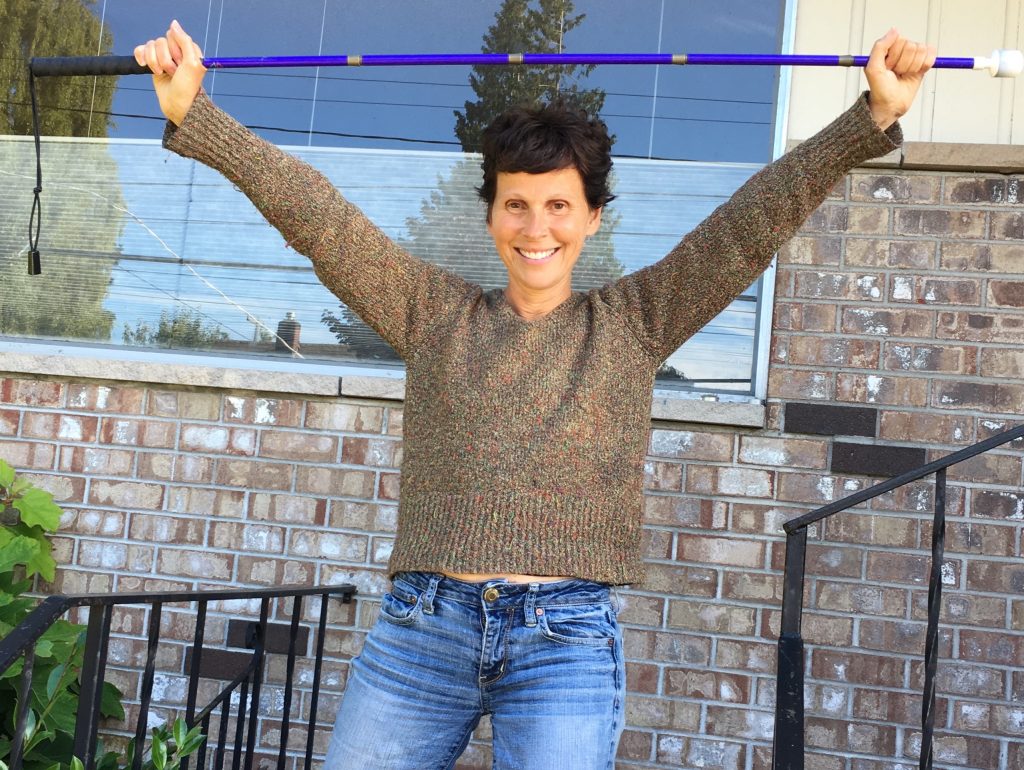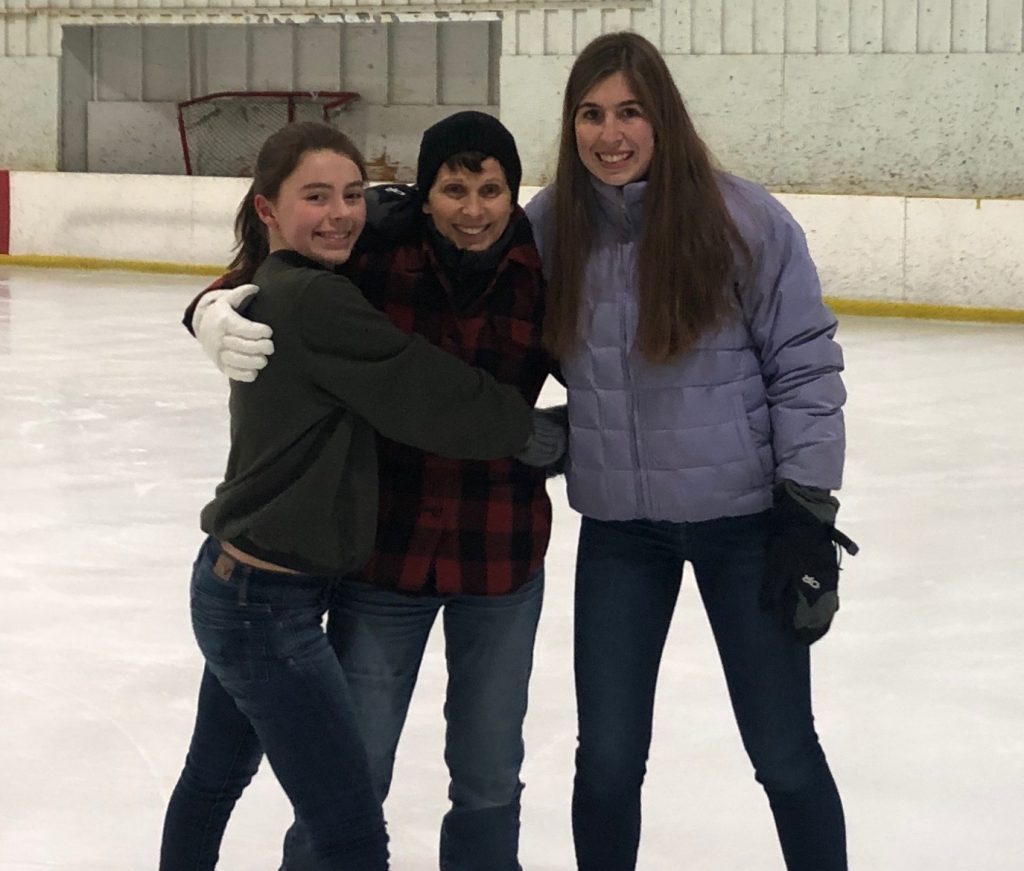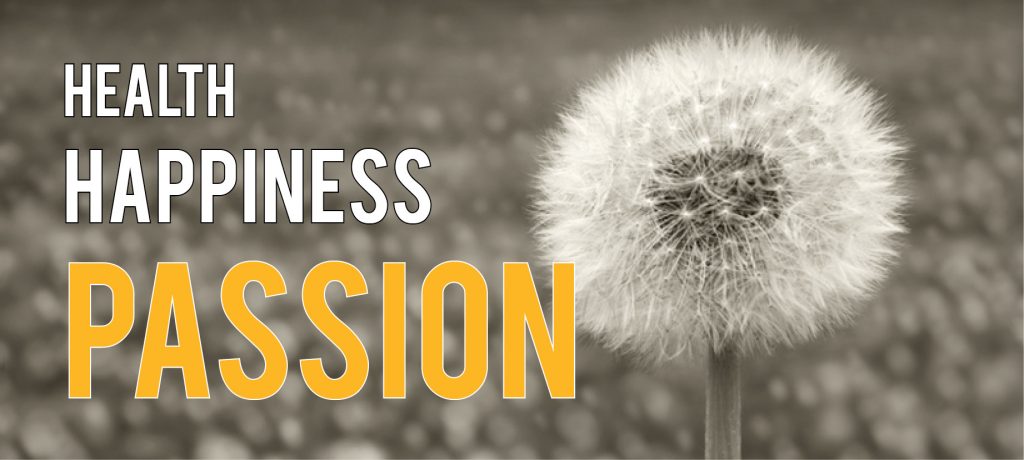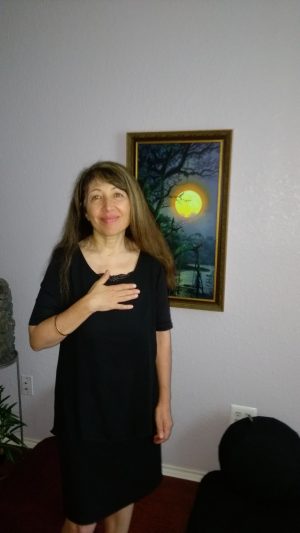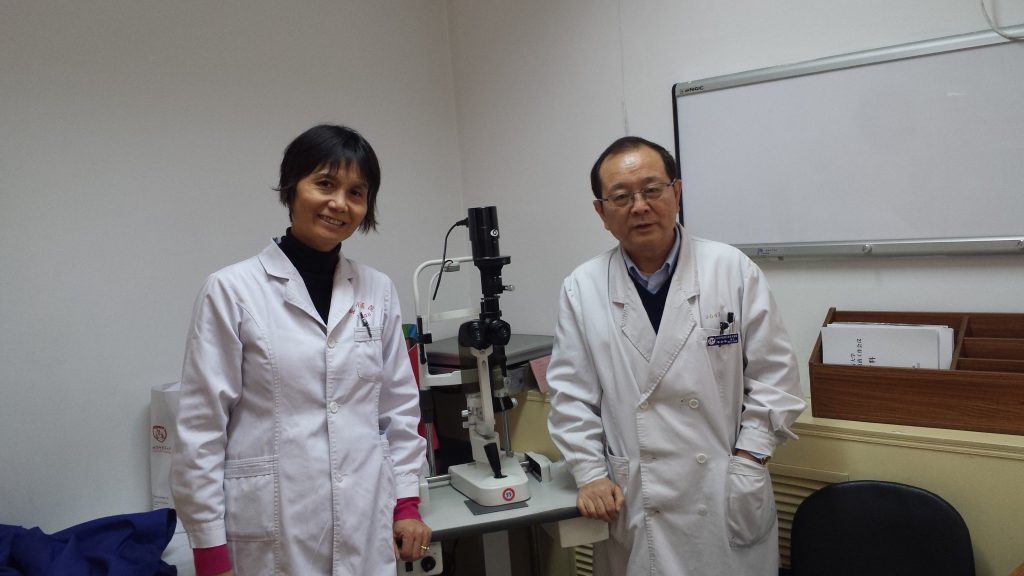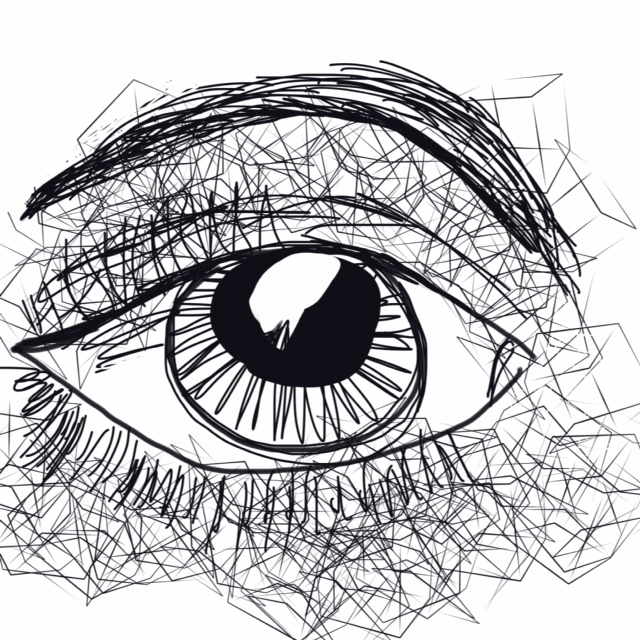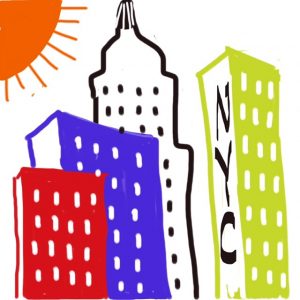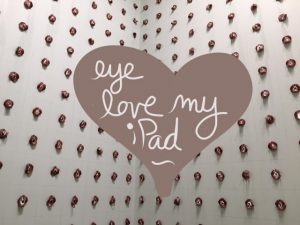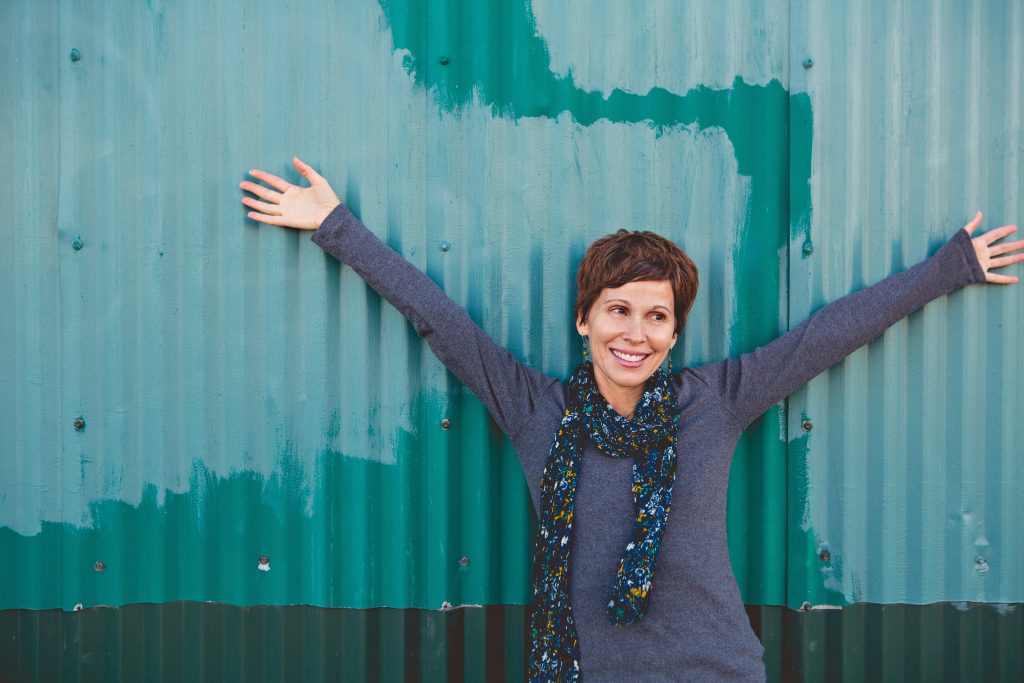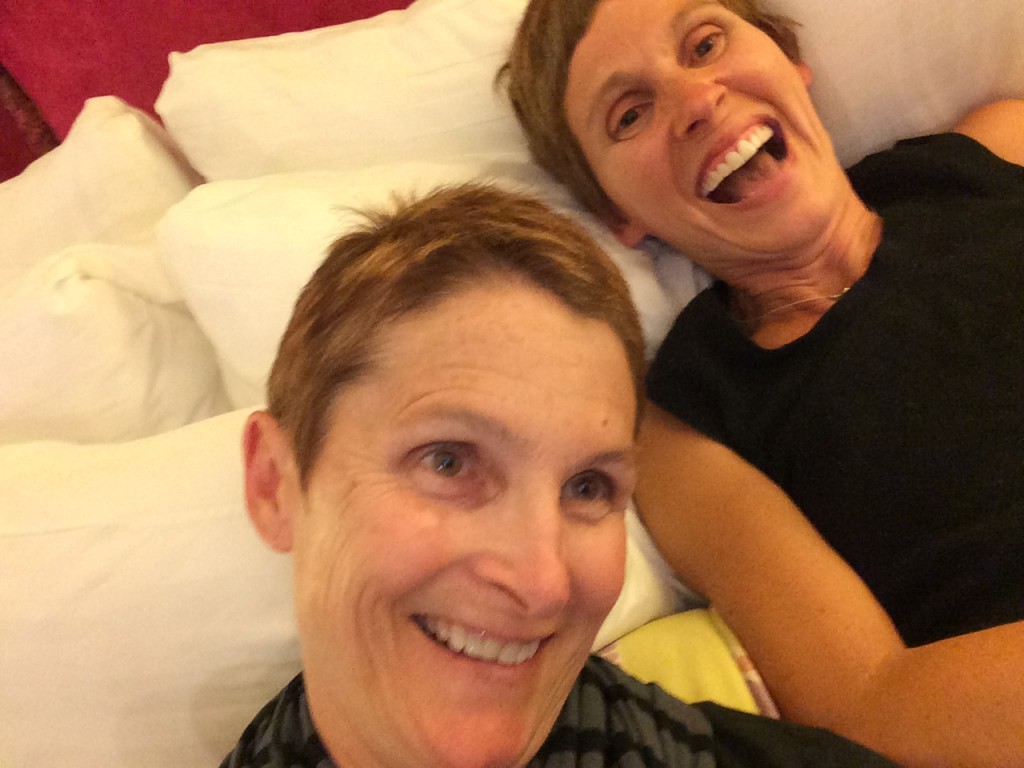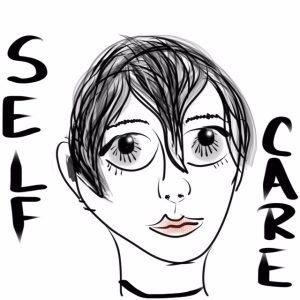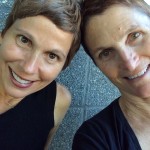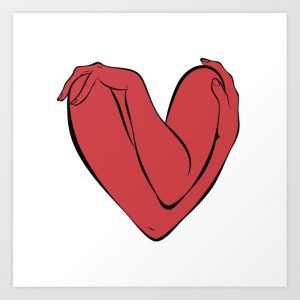
I’ve been mean to myself before. But I didn’t realize just how self-bullying, belittling and cruel I could be until my eyesight took a nose-dive last year. Suddenly I could no longer see my family’s faces or the world around me. And I hated myself for it.
I have always been an optimist and a doer, and have always believed I could control my own destiny. I was convinced that if I wanted something with every part of my being and pursued it with everything I had, I could achieve it. Yet despite fighting tooth and nail to save my eyesight from the blinding eye disease Retinitis Pigmentosa, I had failed. And I hadn’t just failed myself. I had failed my family, the hundreds of friends and strangers who had supported me and rooted me on, and everyone struggling with RP who had followed my lead. Or at least that’s what I told myself.
I was gripped with despair and drowning in grief. The life I knew had been stripped away from me and I was so shattered by the loss I wasn’t sure how to pick up the pieces and move on. It didn’t help that the people I had reached out to for technology training so I could at least keep working ignored my request and instead admonished me to prepare for “stigma” and “social isolation”. But it was the abusive voices inside of me that were doing the most harm. They were cutting and relentless and began seeping into my consciousness.
It was a never ending volley of hate talk: You are helpless, you are weak, you are a burden.
I began questioning my self worth. How was I going to write if I couldn’t make out the words on my computer screen? And who wanted to hire me for writing workshops or personal coaching if they knew I couldn’t see? What good was I to my family and friends if they had to help me all the time? And if I couldn’t see myself in the mirror, did I even exist?
Some days I huddled in a corner on the floor sobbing. Other days I wanted to punch or kick anything or anyone I came across. Most of all, I wanted to punch myself.
This is where I should point out that I’ve been blessed with an amazing family and close friends who were there by my side, providing me with constant love and support. But it wasn’t until I decided I was done with my inner bully that things began to change. I threw myself back into self-help books and daily meditation, and scheduled an emergency session with Behnaz, a psychologist-turned-intuitive-healer who emanates love and kindness.
She wasted no time putting that love to work on me. “Why are you telling yourself this story that now I’m weak and a burden?” She prodded. “Why are you telling yourself this story that now I can’t write or have an impact on peoples’ lives and have lost my identity?
I don’t know why it took Behnaz to make me see what I was doing to myself. But her words hit me at the core. I knew deep down that I was more than my eyesight. So why was I feeding myself such soul-destroying garbage?
I decided to return to my investigative journalist roots and carefully examine every story I had told myself to determine if there was any validity to them.
Story #1. Was it really true that without my eyesight, I could no longer write? This story did hold some truth in the first few weeks following my vision loss. But it changed as soon as I purchased an iPad and began learning the built-in assistive technology that enables me to write and edit via voice and sound. So that story is now false.
Story #2. Would my vision loss interfere with my writing workshops or personal coaching? It certainly hadn’t so far. In fact, both workshop attendees and coaching clients had started commenting on what seemed to now be my photographic memory and my ability to listen more deeply. Several of them also noted that they felt heard and understood by me because of the adversity I have faced.
Story #3. Was I now weak and a burden to my family and friends? No. True I had to ask for help occasionally — but that didn’t make me weak or a burden. It made me human. As I contemplated this particular story, I realized that we all need help on occasion, and that asking for help actually takes a lot of strength. I also realized that I have come a long way in terms of self-empowerment — from learning assistive technology so I can effectively do my work, to employing a purple mobility cane (which I’ve dubbed Purple Power) and some great GPS apps that enable me to navigate both familiar and unfamiliar places on my own.
Story #4. Was I still me if I couldn’t see myself? I didn’t have to think about this one. Yes! I was the same stubborn, feisty, driven, passionate me — and if anything, my determination has only kicked up a notch.
Story #5. Does losing my eyesight mean I’ve failed myself and others? This is a story I had replayed continuously, even though deep down I knew it was complete B.S. I had done everything in my power to save my eyesight. How could that be viewed as failure? The only way I could fail is if I didn’t try or quit. And quitting isn’t in my DNA. I know there is an answer out there for me, and I’ll continue my quest to see until I find that answer. The only difference is that I’m letting go of the control or timelines and just believing that if I continue to do my part, the Universe will take care of the rest.
Story #6. Does my current inability to see hurt? If I focus on the loss than yes, it hurts a lot. In fact, it can send me spiraling. But what’s interesting is that when I focus on all that is right in my life, or am immersed in my work — whether it’s teaching a workshop, giving a talk or helping clients write the personal stories they need to tell— I forget that I even have an eyesight challenge.
Since that pivotal day, I have done a 180 on the stories I tell myself and have banned my inner bully altogether. Instead of telling myself that I am now limited, I remind myself of the powerful, passionate person I am, and think about all of the ways I can defy limits and use my adversity as an asset. I think about how healthy and whole and vibrant I am, and about how fortunate I am to live in such a beautiful city, have the best family and friends imaginable, and have a dream work life that involves doing everything I am passionate about.
I know my self-love journey is a continual one that takes constant vigilance and will last the rest of my life. Though the self-hate I exhibited around my eyesight challenge was extreme, it’s clear it didn’t come out of nowhere. That inner executioner was already there, or it wouldn’t have wielded so much power. And I know I’m not alone in this.
It seems to be our natural default to beat ourselves up for every perceived lack in our lives — whether it’s our work, our relationships, our appearance, our bank accounts, or our health. We also seem to have mastered the art of repeatedly punishing ourselves for every perceived failure, mistake or inadequacy.
But what if we all decided to test the validity of the stories we tell ourselves? What if we chose to toss out the ones we don’t want and start filling ourselves with the positive stories we know are true or want to create for ourselves? And what if, instead of punishing ourselves for being human, we treated ourselves with the love, kindness and understanding we all deserve?
What I know for myself is that shifting my focus from self-hate to self-love has made all the difference in my life. It has returned me to my happy, positive, determined, passionate self—the self I want to be for myself and those I love.
Some days are still hard. And there are times when the negative stories or thoughts still manage to slip through. But when they do, I don’t punish myself for falling short. Instead I gently replace that negative thought with a positive one—such as the I Am the Power, I Am the Light mantra my friend, Libby, lives by. Then I envision giving myself a huge hug.


